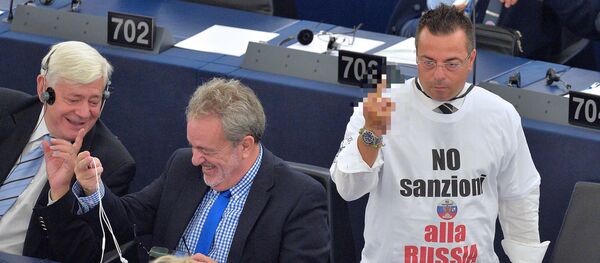The sanctions regime, according to the chairman of the German Committee on Eastern European Economic Relations (Ost-Ausschuss), is not working and is "full of holes." Therefore, there is no need to uphold it.
"Sadly, we have to assume that we will have to work under sanctions for a while. But it is already clear that neither the EU, nor Russians are interested in escalating the conflict. All the parties, including Ukraine, are hurt in the present context," he pointed out. "We hope that soon this deadlock could be resolved," he added.
Meanwhile, some of the German businesses are on the verge of collapse due to the restrictive measures imposed by the West on Russia without any sound reason.
"Major corporations can carry on even with sanctions present but they still struggle. Some firms saw their exports drop by 60 percent and they try to enter new markets. But small companies have found themselves in a situation which threatens their existence," Cordes noted.
Derek Norberg, president of the Council of US-Russia Relations and Executive Director of the Russian American Pacific Partnership (RAPP), echoed the sentiment, saying that anti-Russian sanctions affect global trade, hurting business in Russia, the United States and Europe.
The strategy of ignoring and isolating Russia is obviously not working and should not be pursued, according to Norberg. Washington's policy towards Russia only forces Moscow to seek new alliances, for instance with China, which is not in the interest of the United States, he asserted.


